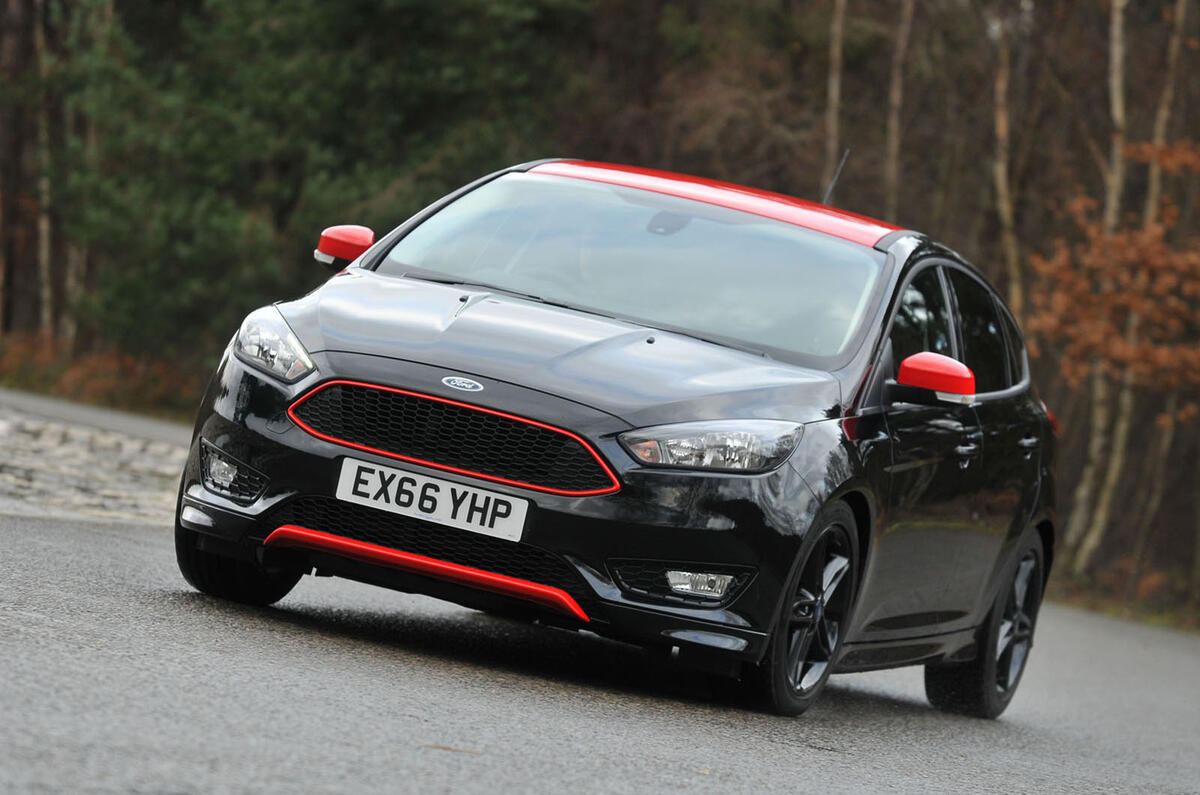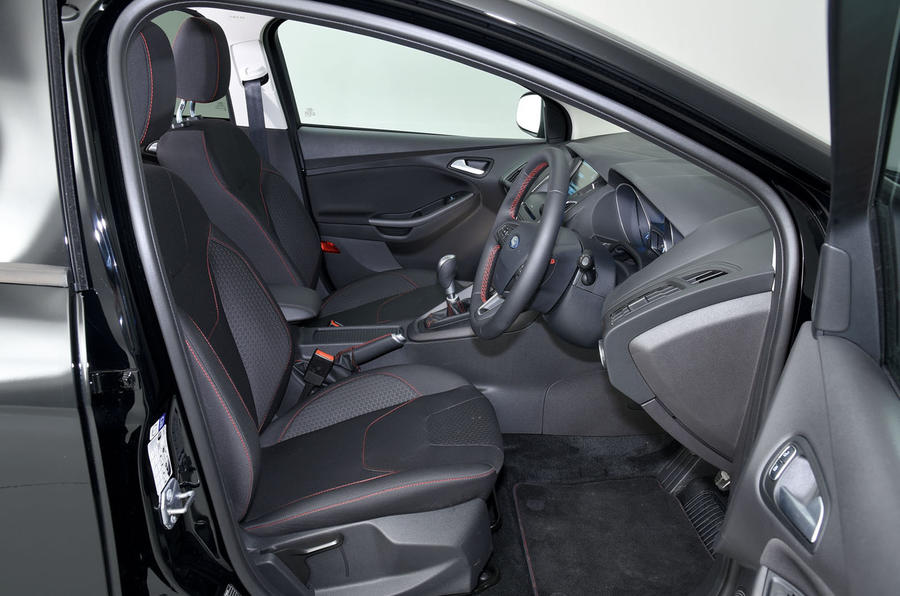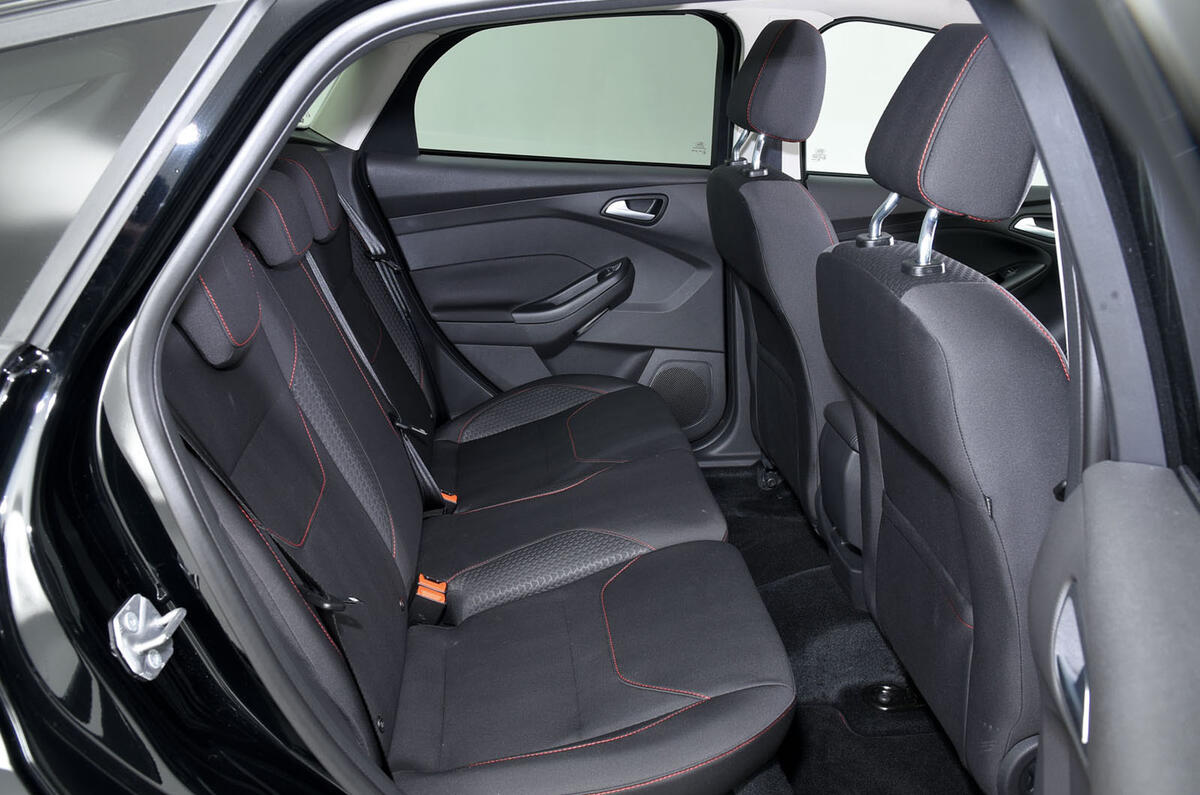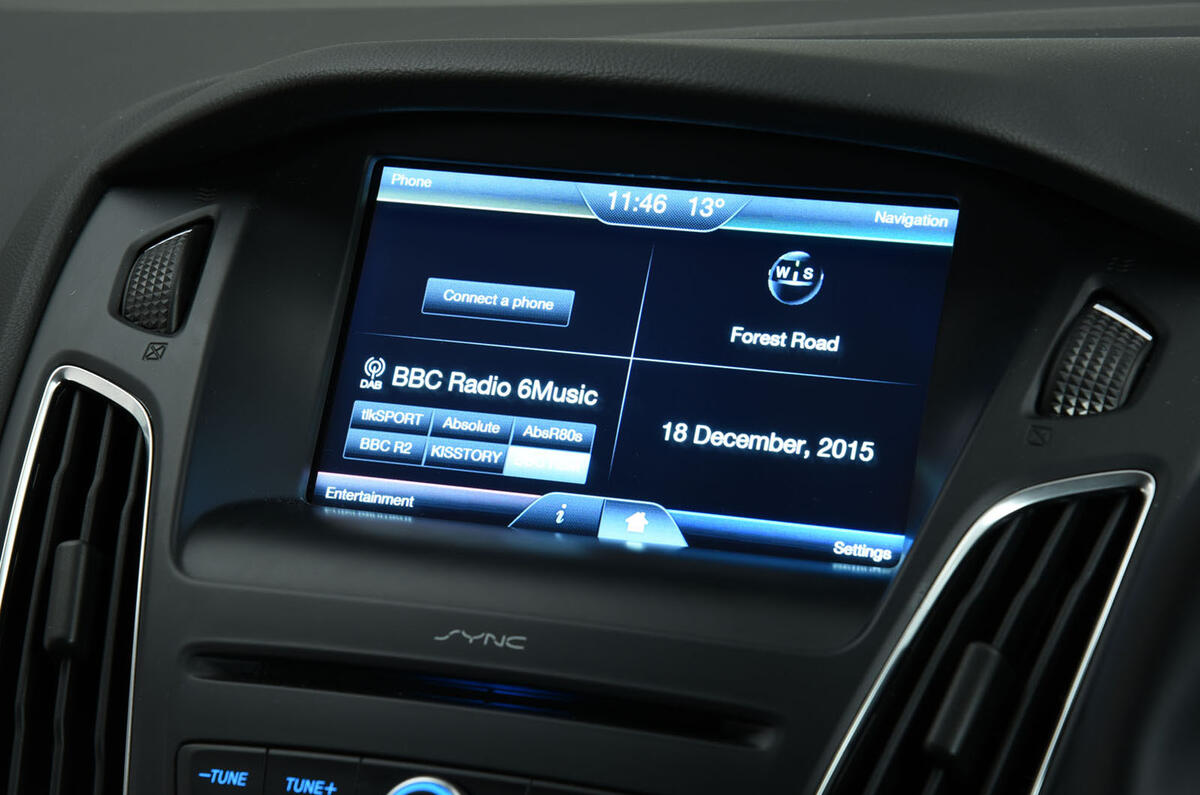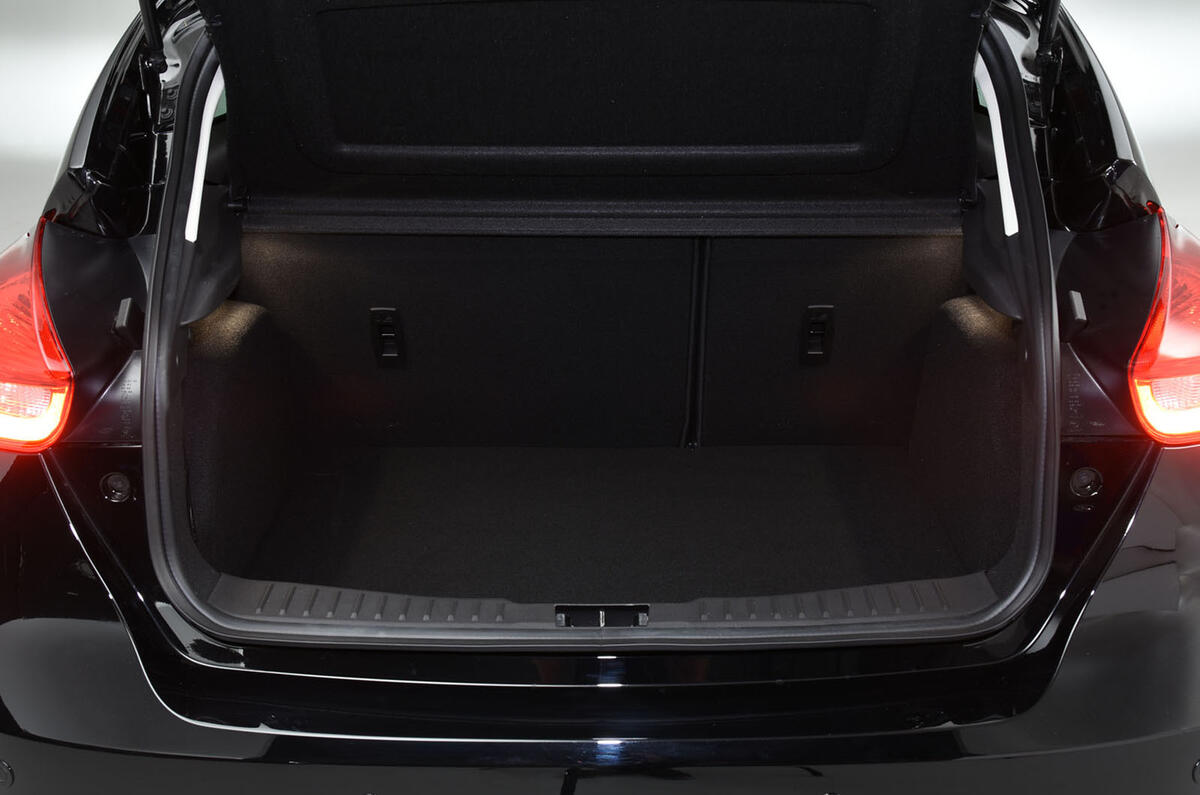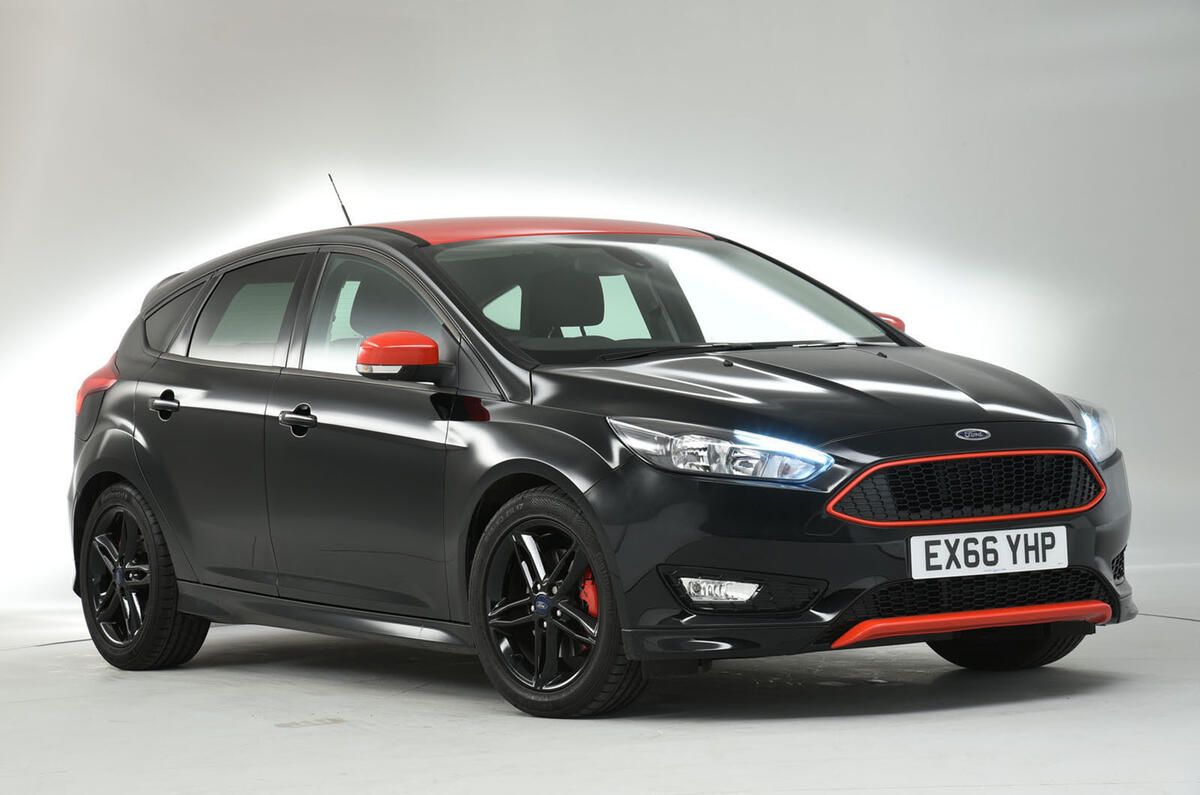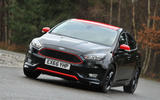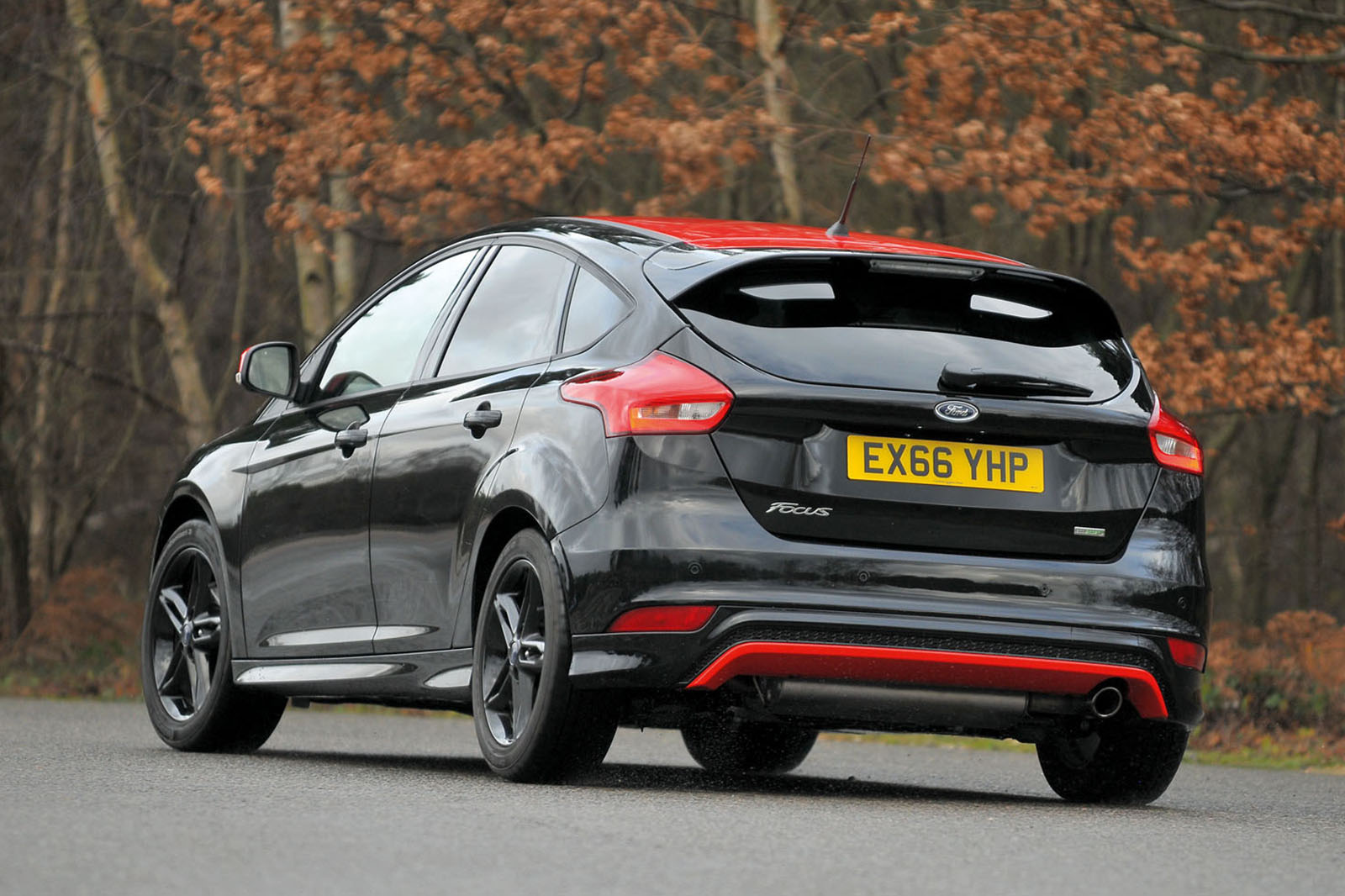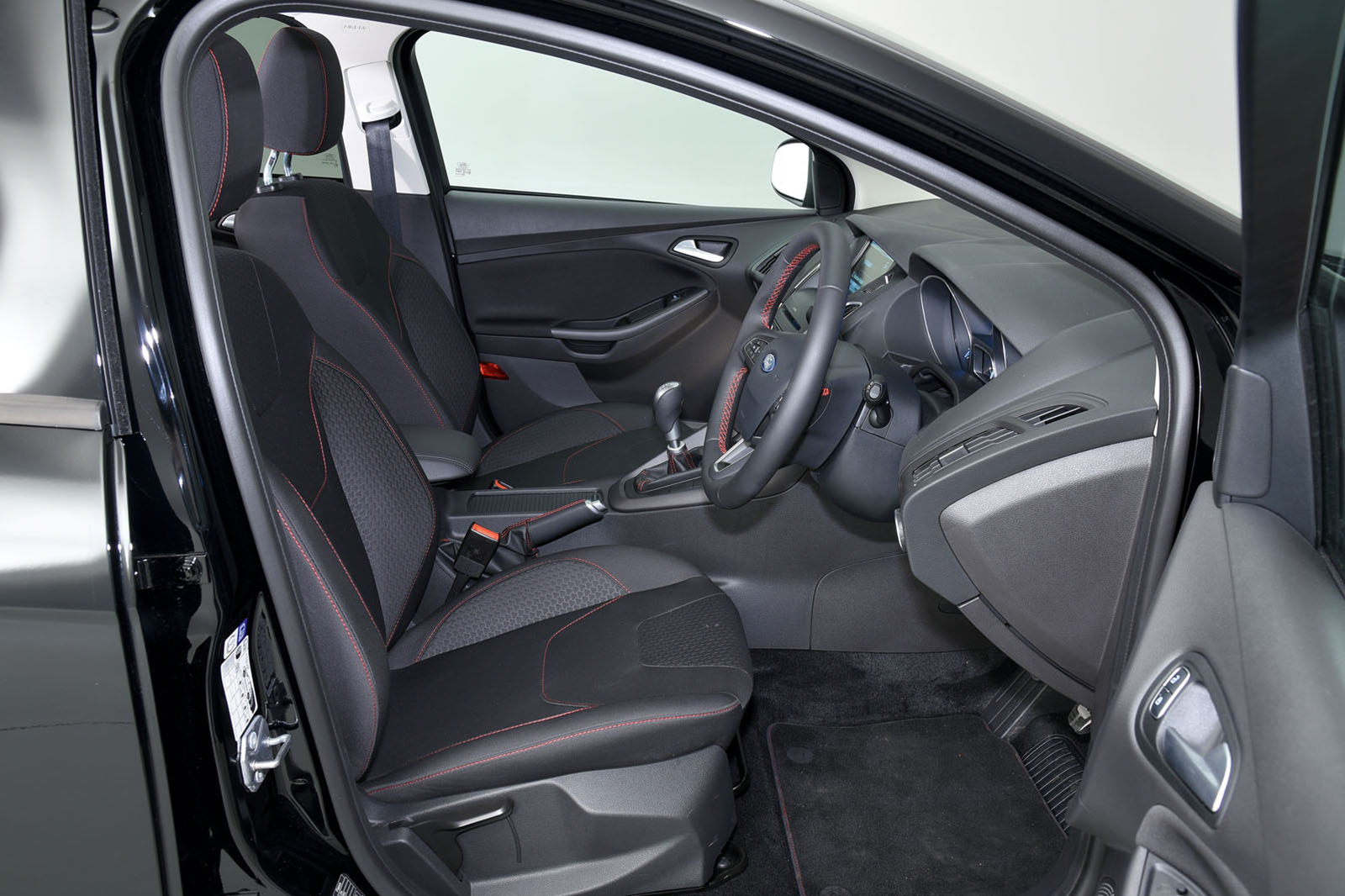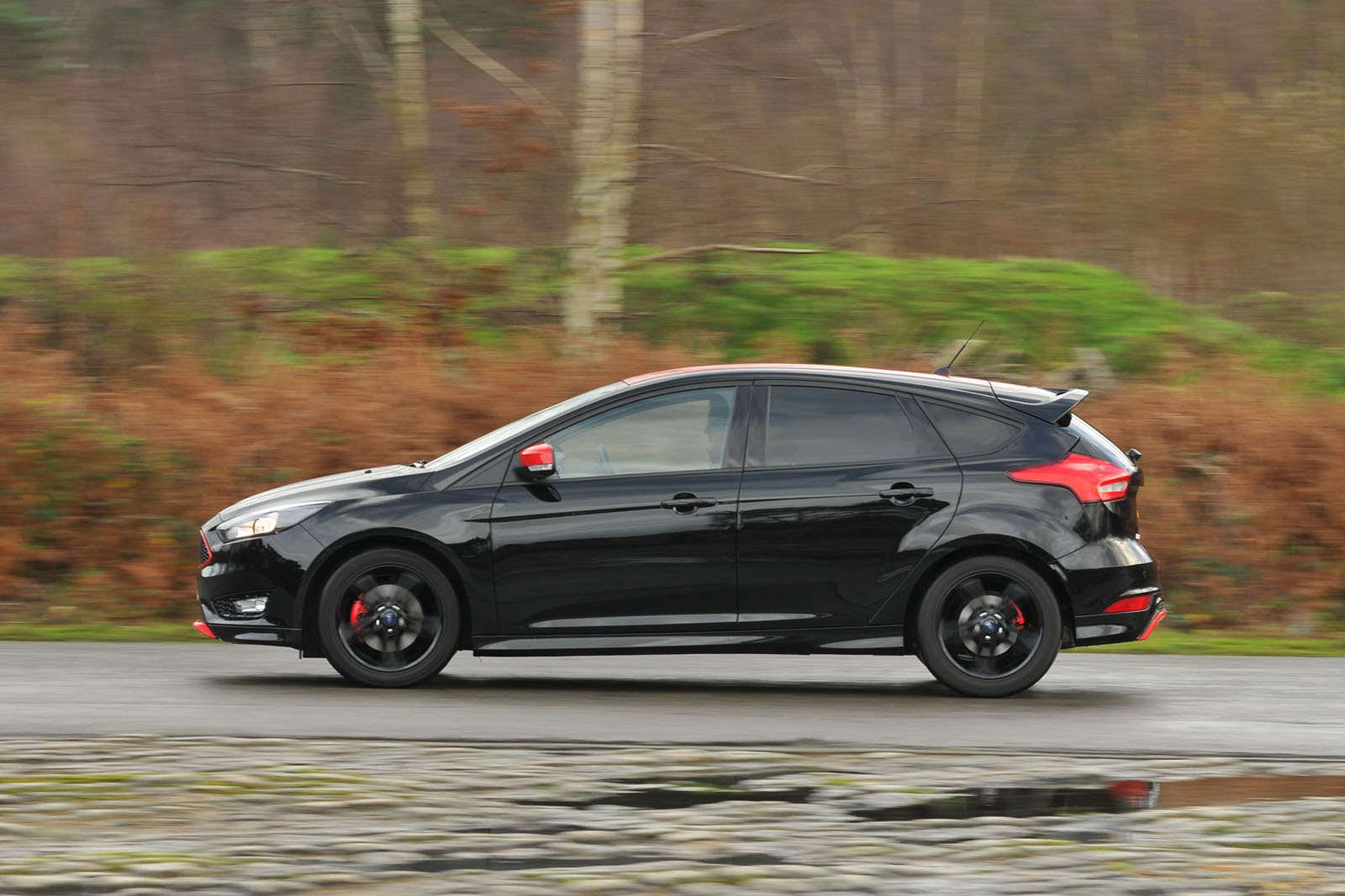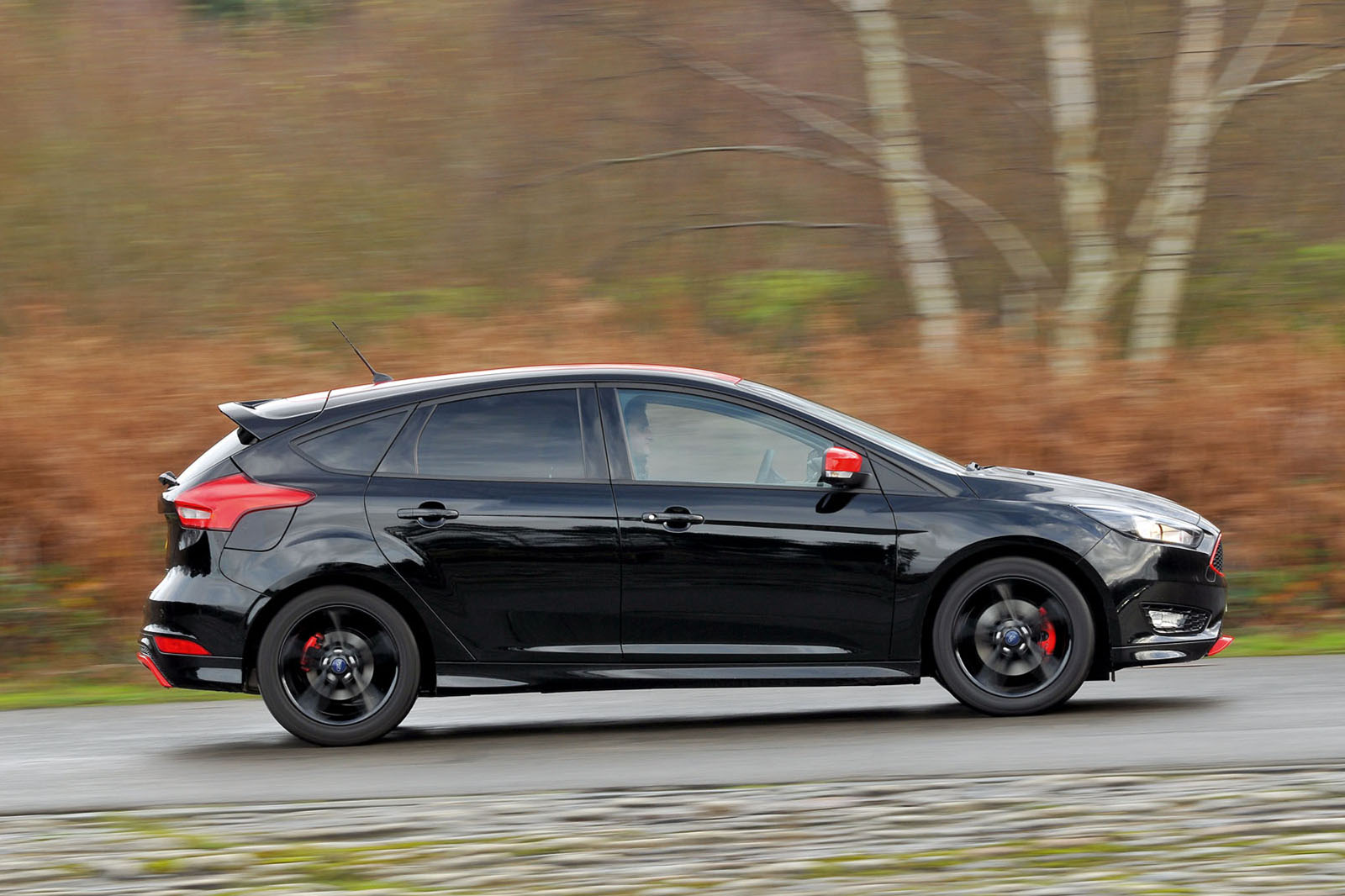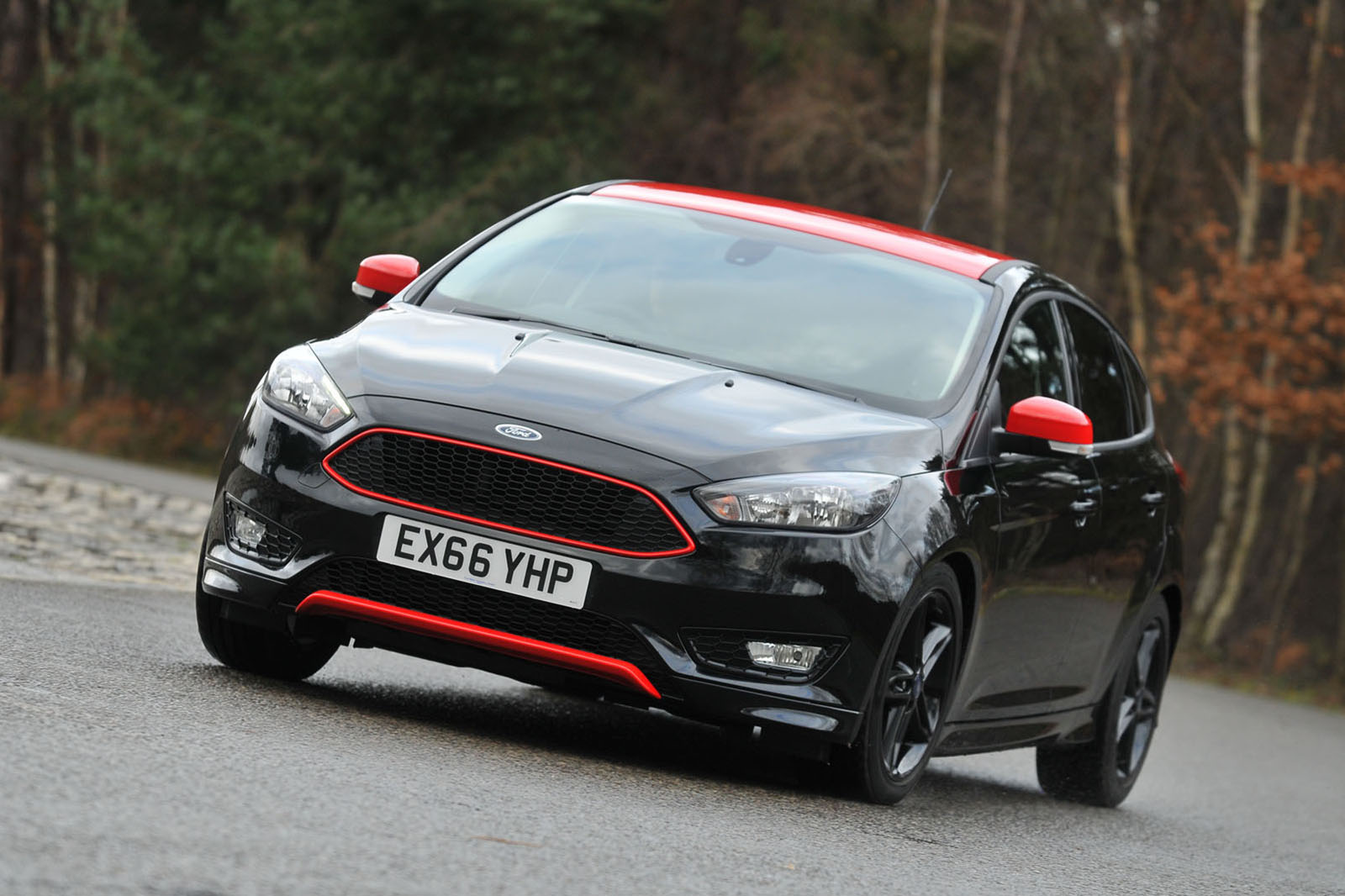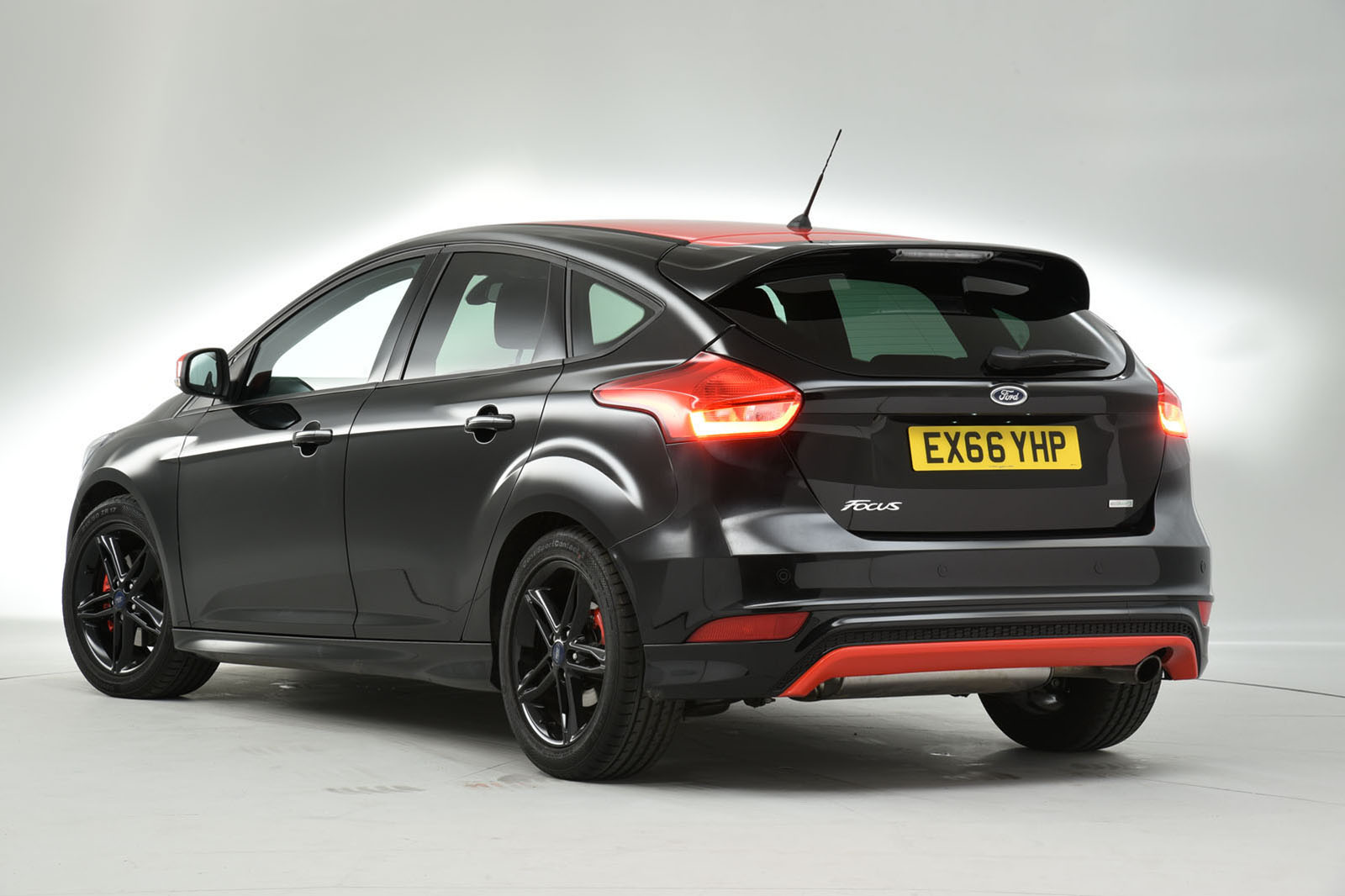Ford’s aim was not only to bring the Focus’s interior up to date with this revision but also to simplify it significantly. Its success is best judged on acquaintance with the dashboard’s centre stack. Where formerly were found two banks of fussy, 1990s mobile phone-like systems buttons, there is now mostly grey plastic and a much smaller and more discreet nest of audio controls.
Underneath, there are likewise smaller and more modern-looking heating and ventilation controls, while above is the star of Ford’s interior makeover: the 8.0in Sync 3 touchscreen multimedia set-up fitted as standard to all Zetec Edition-trimmed models and beyond, while its a £600 option on the Style Econetic Focus. The system is a massive improvement over what was included before. It's not the most responsive system on sale, nor the best laid-out, but it's big, bold and comes with sat nav as standard.
As for equipment levels, the Style Econentic models get 16in steel wheels, hill start assist, air conditioning, cruise control and Ford's Sync infotainment system complete with DAB radio, USB and Bluetooth connectivity. Upgrade to Zetec Edition, and the Focus gains 16in alloy wheels, heated wing mirrors, front foglights, sports seats, rear parking sensors, heated front windscreen and Ford's Sync 3 infotainment system complete with an 8.0in touchscreen display. The mid-range ST-Line models, include numerous sporty touches such as firmer suspension, sports seats, ST-style bodykit, side skirts and rear spoilers and 17in alloy wheels. There is also LED day-running lights, keyless entry, rear LED lights and softer touch dashboard.
Titanium models receive automatic wipers and lights, dual-zone climate control, keyless start and entry and emergency city braking, while the range-topping Titanium X trim comes loaded with plenty of kit, including a rear-view camera, cruise control, heated front seats, part-leather upholstery, ambient interior lighting and bi-xenon headlights.
Opt for the ST models and expect to find an aggressive bodykit, bigger alloys, sportier suspension, rear spoiler and Recaro seats, all of which can be had in estate form. The ST-2 gets 18in alloy wheels and an aggressive makeober, while paying a bit more for the ST-3 will see you receive luxuries such as bi-xenons, leather-clad Recaro seats, rear parking sensors, power folding mirrors, red brake calipers and electrically adjustable front seats.
The fascia looks neater, cleaner and more contemporary as a result of the decluttering but not unquestionably classier. The tactile quality of the dashboard plastics isn’t outstanding, so populating less of their surface area with switchgear, without upgrading the canvas behind, doesn’t do a great deal for cabin ambience. It still feels more tactile and nicer place to be than the Vauxhall Astra but not the desirability of the Seat Leon's and Volkswagen Golf's innards.
The four-spoke steering wheel has been replaced by a smaller three-spoke item with more attractive switchgear and the option of shift paddles if you go for a six-speed Powershift dual-clutch automatic gearbox. The new wheel looks smart, but somehow the old one struck us as a better fit for the car’s sporty character.
Credit to Ford is due for freeing up extra cabin storage midway through a full model generation. Immediately ahead of the gearlever there’s a cubby sized to accept a smartphone or iPod, while further aft on the centre console the cupholders have been made larger and the centre-cubby deeper.
Boot space with seats up decreases from 316 litres to 277 litres which, compared with key rivals such as the Volkswagen Golf's and Kia Cee'd's 380 litres, is lagging behind. An estate version of the Focus is also offered, with boot space being a respectable 476 litres with the seats up and 1502 litres with the seats folded flat. The area is wider than the estate versions of the Volkswagen Golf and Vauxhall Astra, but not as long.
Overall, though, you’d say the Focus’s cockpit has taken two steps forward, only to take one step back. Progress has been made here, but this remains a roomy, functional driving environment rather than a particularly pleasant or inviting one.


